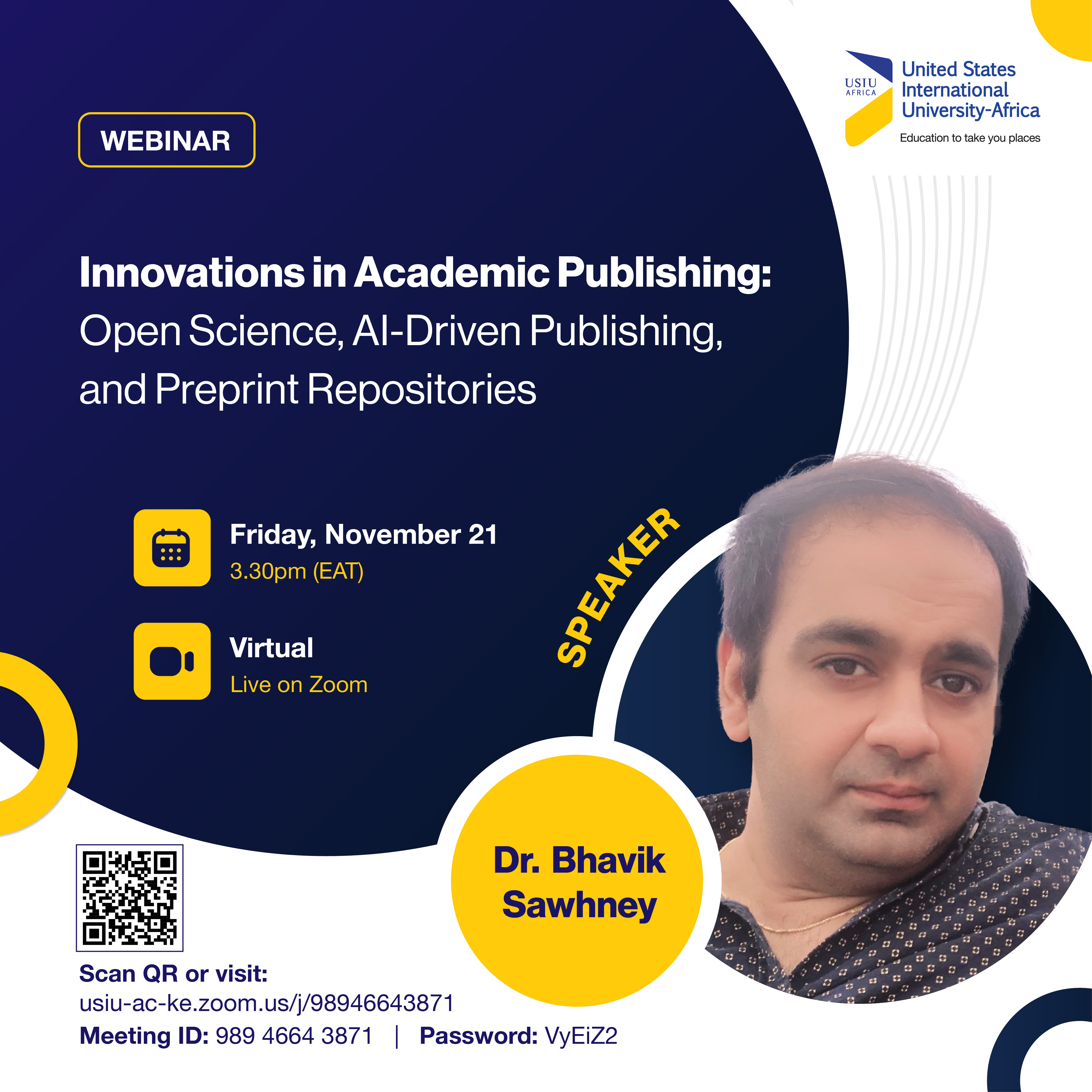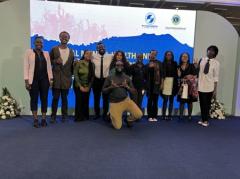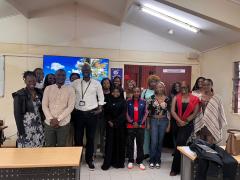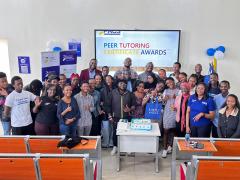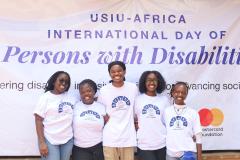VCs Weekly Higher Education Digest: January 14, 2019
Experts weigh in on higher education challenges By Wagdy Sawahel UNIVERSITY WORLD NEWS
A selection of experts and scholars in African higher education share their views on the key challenges and trends facing higher education in the upcoming year.
https://www.universityworldnews.com/post.php?story=2019010712411454
Dismantling colonization’s ‘pedagogy of big lies’ By Savo Heleta UNIVERSITY WORLD NEWS
More than two decades after the end of apartheid, historical and structural inequalities, rooted in the racist colonial and apartheid oppression and dispossession, remain part and parcel of the South Africa’s social fabric. The country’s higher education institutions are no exception. Since 2015, young black students have been demanding fundamental transformation at South African universities. They have campaigned to remove colonial and racist symbols, dismantle oppressive institutional cultures, end epistemic violence and decolonize the curriculum.
https://www.universityworldnews.com/post.php?story=20190107093331500
Murder of Dean who exposed fraud shines spotlight on corruption By Anna McKie TIMES HIGHER EDUCATION
Concern about corruption in South African higher education has mounted in the aftermath of the murder of a senior scholar who tried to blow the whistle on academic fraud. Gregory Kamwendo, dean of arts at the University of Zululand, was shot and killed outside his home in May…. Naledi Pandor, South Africa’s higher education minister, said it was “clear that there are criminals outside and within our university system who will stop at nothing to use our universities for financial gain.”
https://www.timeshighereducation.com/news/murder-dean-who-exposed-fraud-shines-spotlight-corruption
GHANA: No PhD, no tenure policy – Is it the best way forward? By Francis Ansah, Patrick Swanzy and Regina Anuwah Obeng UNIVERSITY WORLD NEWS
The statistics on higher education institutions published by NAB in 2018 indicate that public universities have an academic staff strength of about 5,000. Out of this, only 1,800 hold doctoral degrees. Academic staff with doctoral degrees teaching in private universities total 874 out of an academic staff strength of 4,194…. Even without enforcing the doctoral degree as a compulsory qualification for academic staff of Ghanaian universities, the student to academic staff ratio appears excessively high.
https://www.universityworldnews.com/post.php?story=20190103090808316
Is this Higher Education’s Golden Age? By Steven Brint THE CHRONICLE OF HIGHER EDUCATION
American universities appear to be in deep trouble. Consider a few recent headlines: In the Atlantic: “The Pillaging of America’s State Universities” and “The Broken Promise of Higher Education”; In the New York Review of Books: “Our Universities: The Outrageous Reality” and “The Hi-Tech Mess of Higher Education.” The Chronicle, too, has contributed to the pervasive negativity: “An Era of Neglect,” “Higher Education Is Drowning in BS,” “The Slow Death of the University.”… The truly puzzling feature of this narrative is how little relation it bears to reality.
https://www.chronicle.com/interactives/golden-age
The U.S. Did a Major Report on Campus Hunger. Here Are 3 Takeaways By Lily Jackson THE CHRONICLE OF HIGHER EDUCATION
The most robust investment in ending campus hunger may be too complicated to accomplish its goals, according to a new report from the U.S. Government Accountability Office. Responding to hunger and poverty on campuses has been a growing concern throughout higher education in recent years. The office's report, released on Wednesday, is sure to draw more attention to the problem — and provide details about its prevalence.
https://www.chronicle.com/article/The-US-Did-a-Major-Report-on/245442
Why are so many students struggling with their mental health? By Catherine Munn UNIVERSITY AFFAIRS CANADA
Why are so many university students struggling? This is the question I am often asked by faculty, staff and parents when I talk about my work as a psychiatrist with students confronting mental health and substance use issues…. On a systems level, we must examine the educational and health systems and processes we are creating and maintaining on our campuses and in our communities and ask: are they helpful or harmful to mental health, and how resilient and flexible are they to the needs of youth?
Handle With Care By Nancy Mann Jackson BUSINESS OFFICER
In recent years, institutional leaders say that they’ve seen a stark increase in the number of college students who are withdrawing due to medical reasons. No widespread study shows the prevalence of medical withdrawals, but professionals at numerous colleges and universities share anecdotal evidence of the trend, with many enacting new policies to more efficiently handle the associated workload. For institutions, a rise in medical withdrawals doesn’t just affect college completion rates; it also affects day-to-day schedules and staff resources.
https://www.businessofficermagazine.org/features/handle-with-care/
Start Smart with Data: 10 Steps for Success By Cara Giacomini EDUCAUSE
Within higher education IT departments are well-established partners in the use of business intelligence and analytics to provide enterprise-level data, to support institutional research, and, increasingly, to measure student success. Maturity of data governance, analytical methods, and practices in these areas has increased exponentially over the past decade or more…. Currently, there is a growing desire for data-informed decision making to permeate all of aspects of higher education.
https://er.educause.edu/blogs/2018/12/start-smart-with-data-10-steps-for-success
Metatrends Conclusions By Diana Oblinger EDUCAUSE
This post concludes a blog series describing five “metatrends,” drawn from a review of articles in industry IT press, that affect CIOs in all IT sectors: Challenges of scale; Analytics; Technology and work; Business value; Competition and control. Those in higher education information technology know that attaining maximum operational and strategic value from technology is challenging but rewarding.
https://er.educause.edu/blogs/2014/12/metatrends-conclusions
How One College Made Its Gen-Ed Program Feel More Relevant THE CHRONICLE OF HIGHER EDUCATION
Shenandoah University was in the midst of revising its general-education curriculum about four years ago when Amy Sarch, an associate provost there, heard about an unusual program on the other side of the country. It was called Town Hall Meeting, and featured a forum at which students at California State University at Chico discussed public-policy issues with other students, faculty members, administrators, and community members. The students analyzed policies and came up with solutions by drawing on multiple perspectives.
https://www.chronicle.com/article/How-One-College-Made-Its/245402
Does ‘High-Impact’ Teaching Cause High-Impact Fatigue? By Jane S. Halonen and Dana S. Dunn THE CHRONICLE OF HIGHER EDUCATION
Colleges that care about teaching often promote the value of "high-impact practices" and "transformative" learning. That could mean a writing-intensive course, a small seminar for freshmen, a service-learning project, or even something as simple as an informal meal in a faculty member’s home. Such high-impact practices — HIPs, as they’re known — have become the kind of metric institutions brag about in their mission statements. So what’s the problem? High-impact practices can be exhausting. https://www.chronicle.com/article/Does-High-Impact-/245159
Is internationalization creating inequality in higher education? By Giorgio Marinoni and Hans de Wit UNIVERSITY WORLD NEWS
Inequality is a word that has recently dominated public discourse, mainly with regard to its economic meaning of income and wealth inequality, but also in terms of social and educational inequality…. What do the results of the 5th Global Survey on Internationalization of Higher Education, an online survey conducted by the International Association of Universities (IAU) in 2018, which received replies from 907 higher education institutions from 126 countries around the world, tell us about this topic?
https://www.universityworldnews.com/post.php?story=20190109100925536
The ‘bolus’ model: a better template for internationalization? By Ellie Bothwell TIMES HIGHER EDUCATION
A partnership between the University of Toronto and Ethiopia’s Addis Ababa University started out as just one joint psychiatry postgraduate training program in 2003. Now academics across 24 disciplines from engineering to library science collaborate to build graduate programs at the African institution, with 86 Toronto scholars visiting the university in 2018 alone.
https://www.timeshighereducation.com/news/bolus-model-better-template-internationalisation
Career advice: who should lead on mentoring for female academics? By Jack Grove TIMES HIGHER EDUCATION
In a study, published in the journal Annals of Global Health and based on answers from 405 delegates at last year’s Women Leaders in Global Health Conference, held at Stanford University, the lack of mentoring emerged as the main barrier to achieving a leadership position – with 56 per cent of respondents identifying it as a problem…. However, some respondents also note that institutional structures are only part of the problem and that “women need to do a better job supporting one another.”
https://www.timeshighereducation.com/news/career-advice-who-should-lead-mentoring-female-academics
Retirement planning: do compulsory retirement ages benefit the academy? By Jack Grove TIMES HIGHER EDUCATION
Many older academics have a great deal to offer, in terms of both research and teaching the next generation. But should they step aside for the sake of their younger colleagues’ careers?.... “The sagacity of the seniors and the energy of the young” should be the ideal combination, Paton says. “Without that synergy, we will step on the same rake as our ancestors did. ‘To raze everything and build a whole new world’ – that principle does not hold true in science.”
Job challenges for young scientists tied to retirement age shift By Paul Basken TIMES HIGHER EDUCATION
Delayed retirement by US academics is responsible for a 20 per cent reduction in the number of new hires among younger scientists, according to a study. The analysis, published in Plos One, concludes that a 1994 federal policy shift eliminating the mandatory retirement age of 70 for all tenured faculty explains about half the growth in their average age.
https://www.timeshighereducation.com/news/job-challenges-young-scientists-tied-retirement-age-shift
Online ‘intimidation’ of ‘left-biased’ academics spreads worldwide By David Matthews TIMES HIGHER EDUCATION
Academics around the world are facing threats of secret recording and denunciation online by their own students in a sign that tactics used by far-right activists in the US are being adopted more widely. In response to a wave of incidents where students have posted evidence of alleged left-wing radicalism online, scholars are now demanding stronger support from their institutions in the face of resulting harassment.
Industry interest in research ‘needed to drive innovation’ By Simon Baker TIMES HIGHER EDUCATION
Finding the best way to turn high-quality academic research into economic success is a question that vexes policymakers the world over. But nations where innovation is being driven by private firms are making the most progress in this area, and universities should not necessarily be blamed if a country is lagging behind. Those are among the conclusions that could be drawn from an analysis of statistics on the rate at which academic research was cited by patents between 2008 and 2014.
https://www.timeshighereducation.com/news/strong-industry-interest-research-needed-drive-innovation
Bridging the Gap Between Science and Government By Julia Piper THE CHRONICLE OF HIGHER EDUCATION
Research universities rely on government agencies for funding, but the latest word on those agencies’ science policies doesn’t reach campuses instantly. That’s why a few universities have created senior leadership roles dedicated to communicating between Capitol Hill and campus research laboratories. "You can’t really have a loud bell go off and have everybody change their behavior across the country" in response to new policy directions, says Keith Yamamoto, who three years ago became the University of California at San Francisco’s first vice chancellor for science policy and strategy.
https://www.chronicle.com/article/Bridging-the-Gap-Between/245284
University donations: No strings attached? By Paul Basken TIMES HIGHER EDUCATION
The challenge of donor interference goes back centuries. Some of the US’ most respected universities, including Johns Hopkins, Stanford and the University of Chicago, are themselves donor creations. It wasn’t long, said Benjamin Soskis, an expert on non-profits and philanthropy at the Urban Institute, before the controversies began…. Universities today deter such interference by setting basic rules that make some egregious donor practices and involvement clearly unacceptable, Soskis says.
https://www.timeshighereducation.com/features/university-donations-no-strings-attached
University admissions: which system is the fairest? By Ellie Bothwell TIMES HIGHER EDUCATION
Standardized test scores, interviews, entrance exams, choosing the top percentage of applicants: all are used in university admissions. Ellie Bothwell asks which methods provide the most honest reflection of suitability for higher education…. There have long been debates over the best and fairest ways to select students.
https://www.timeshighereducation.com/features/university-admissions-which-system-fairest
Law Schools Are Bad for Democracy: They whitewash the grubby scramble for power By Samuel Moyn THE CHRONICLE OF HIGHER EDUCATION
Yale Law School, where I teach, was roiled by the confirmation process of Brett Kavanaugh…. This dispute raised a lurking question: What is law school for? How does it serve the individual aspirations of some of our most gifted young people, and the high ideals for social justice that many of them care about? "… Some might be forgiven for thinking that there is an obvious answer to the question of what law schools, even elite ones, are for…. Such easy answers do get at the core of what law schools are supposed to be about and therefore how they ought to be organized. But they also miss a lot.
https://www.chronicle.com/article/Law-Schools-Are-Bad-for/245334
The New Science Wars By Steven Klein THE CHRONICLE OF HIGHER EDUCATION
The relationship between the humanities and the sciences, including some quarters of the social sciences, has become strained, to put it mildly…. These controversies could potentially illuminate core moral and political questions about the nature of scholarship, humanistic and otherwise. Yet, as with so many dysfunctional relationships, partisans of each side think they are having a conversation without really talking to each other at all.
https://www.chronicle.com/article/The-New-Science-Wars/245333
Reshape Your Space By Karla Hignite BUSINESS OFFICER
More campuses are rethinking the best use of existing space to bring facilities resources in line with emerging program and workforce need. Dynamic, active, shared. That’s one way to sum up current shifts in campus space management, says Elliot Felix, founder and CEO, Brightspot strategy LLC, New York City. On the rise: developing spaces that you can more easily adapt as needs change, that create a sense of energy to attract people, and that serve multiple functions to maximize convenience and cost efficiency.
https://www.businessofficermagazine.org/features/reshape-your-space/

